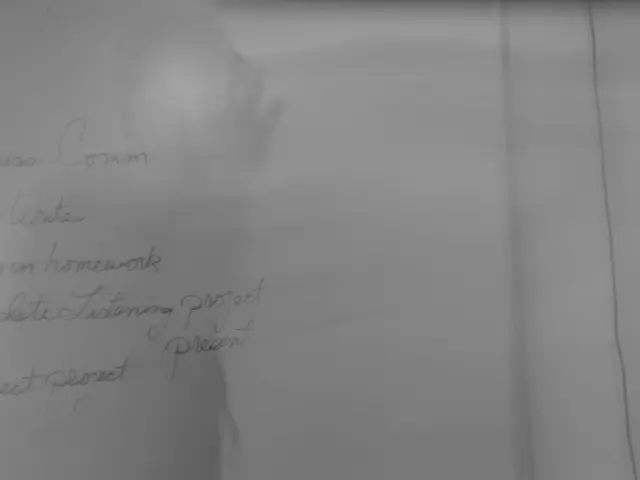Heating Revolution in Germany: Heat Pumps Rock the Scene
A majority of contemporary buildings in Germany are warmed through the utilization of heat pumps.
Germany's residential construction landscape is witnessing a significant shift, with an overwhelming 69.4% of new buildings in 2024 relying on heat pumps for heating, as revealed by the Federal Statistical Office. This figure represents a 5-point leap compared to 2023. Since 2014, the heat pump's popularity has more than doubled as the go-to heating solution.
Single and two-family houses are leading the charge, with an impressive 74.1% of newly built houses in this category opting for heat pumps as their primary source of warmth. In multi-family houses, the figure stands at 45.9%. These statistics paint a picture of a nation embracing renewable energy for a sustainable future.
Heat pumps, predominantly ground and air types, are increasingly favored over traditional sources, joined by wood, solar thermal energy, and others in the renewable energy stable. In 2024, renewable energy dominated 73.9% of residential buildings under construction, a figure that was a mere 38.5% ten years ago. When supplementary energy sources are factored in, renewable energy powered heating in 82.3% of newly constructed residential properties in 2024.
Natural gas trails behind as the second most popular source of heating in new buildings, with a paltry 15.0% share in 2024—a stark contrast to the 50.7% share it held in 2014. The landscape looks alarmingly different for existing buildings, with more than half (53.9%) still relying on gas for heating, according to the statistical office. Renewable energy takes a backseat in this context, accounting for only 10.2% of the heating market.
However, the tide appears to be changing as new residential building plans increasingly favor renewable energy. A whopping 84.8% of the approximately 54,800 residential buildings approved in 2024 are slated to be heated primarily with renewable energy, with a majority leaning towards heat pumps.
Despite the promising trajectory, the heat pump production sector has faced a blow in 2024, witnessing a 59.4% decline in units produced compared to the previous year—a low not seen in the last six years. The production figure for 2024 stands at 162,400 units.
Sources: ntv.de, AFP
Additional Insights:- Government Incentives: The German government encourages the adoption of heat pumps through subsidies like those offered by the Federal Office for Economic Affairs and Export Control (BAFA), covering up to 50% of the installation costs.- Market Growth: The German HVAC market, encompassing heat pumps, is poised to experience considerable growth due to advancements in technology and increased focus on energy efficiency. However, the country's production levels of heat pumps are not detailed.- Global Demand for Heat Pumps: The global demand for heat pumps is on an upward trajectory, with projections indicating a 6% annual growth rate until 2050.
In light of the shifting residential construction landscape, conversations surrounding community policy will likely revolve around promoting and streamlining the adoption of renewable energy sources, such as heat pumps, for environmental-science and technological advancements in general-news. To supplement the growing demand for vocational training, environmental-science and technology sectors might witness an increase in the number of students seeking education in heat pump systems and green energy solutions. A robust knowledge of these fields will empower them to contribute to Germany's goal of a sustainable future.








